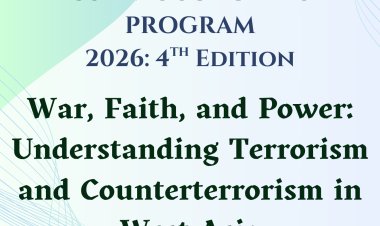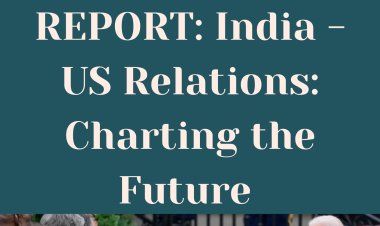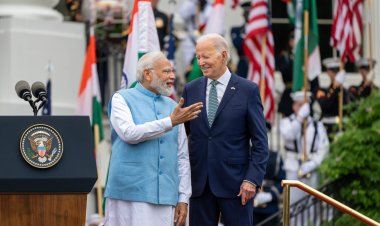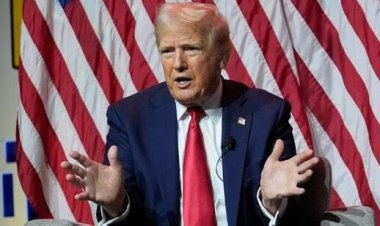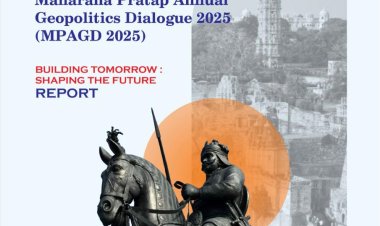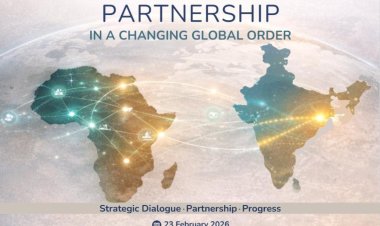Great Powers and their Responsibilities in Tackling Non-Traditional Security Threats
The article analyses the tackling of non-traditional security threats and how fentanyl's growing presence in the illicit drug market has played a significant role in fuelling the opioid epidemic.

Analysis
By Dr. Sriparna Pathak
The two World Wars and the subsequent Cold War were thought to be the most debilitating blows to the international order. However, what was not envisaged in the aftermath of large-scale conflicts up to the 1990s were the destabilizing effects of conflicts that go beyond sovereign borders. Non-traditional security threats in the form of terrorism, money laundering counterfeit currencies and drugs emerged as significant challenges to the international system, and the world order in 2023 continues to face challenges from threats in the realm on non-traditional security. The usage of drugs has emerged as a potent challenge and has all the devastating capacities to bring even the most powerful states of the international order down to its knees. The US, currently the leading actor in the international system is facing an enduring opioid crisis, marked by a devastating toll of over 564,000 overdose deaths spanning the period from 1999 to 2020, and finds itself amid an unparalleled epidemic of addiction and death, fuelled by the illicit trafficking, sale, distribution, and misuse of fentanyl and other synthetic opioids.
This crisis has been exacerbated in recent years, largely due to the rising prevalence of fentanyl, which is a potent synthetic opioid. Fentanyl's growing presence in the illicit drug market has played a significant role in fuelling the opioid epidemic. As a synthetic opioid, fentanyl is substantially more potent than traditional opioids like morphine and heroin, making it exceptionally hazardous even in small quantities. When added to other drugs or sold as counterfeit prescription pills, it intensifies the risk of overdose, leading to a surge in fatal outcomes.
With regards to the rampant supply of the drug, the US has often found links going beyond its sovereign borders and emanating from China. In the month of June alone this year, the US Justice Department has filed criminal charges against four Chinese companies for trafficking materials to create fentanyl. The three indictments mark the first time that the US government has sought to prosecute companies and individuals based in China, for bringing the ingredients for fentanyl into the US and Mexico. In April, Mexican President Andres Manuel Lopez Obrador stated that he had written a letter in March this year to Chinese President Xi Jinping urging him to help control shipments of fentanyl to Mexico, as he fended off criticism in the US that Mexico is not doing enough to stop trafficking of the synthetic opioid. China’s foreign ministry in April stated that there is no such thing as illegal trafficking of fentanyl between China and Mexico.
With regards to China, since 2015 the Chinese government has been reportedly increasing the number of banned fentanyl substances. However, the bans have not yielded enough results or have not been strong enough since the flow to Mexico and US has continued unabated. Within China itself, while statistics on the illicit usage of fentanyl specifically are not available, the Chinese consulate in Los Angeles states that in the year 2021 alone there were 54000 drug-related cases that were solved in China, 77000 people arrested and 27 tons of drugs were seized. It goes on to state that 326000 people in 2021 were identified as using drugs.
Online transactions of drugs have become easier due to the easy availability of technology along with the ease of production of drugs. Transnational criminal organizations (TCOs), including Mexican, Chinese and other foreign fentanyl suppliers, and Internet purchasers located in the United States, engage in the trafficking of fentanyl, and other synthetic opioids and the subsequent laundering of the proceeds from such illegal sales. In 2019, the Financial Crimes Enforcement Network in the US issued an advisory to alert financial institutions to illicit schemes and mechanisms related to the traffic of the deadly drug.
While China continues to shirk responsibilities, the US is actively looking for partnerships to curb the supplies of these dangerous drugs. During Indian Prime Minister, Narendra Modi’s visit to the US in 2023, the two sides committed to strengthening the bilateral drug policy relationship and agreed to take more steps towards the commitment by treating addiction, disrupting the global trafficking of illicit drugs, and by creating healthier communities. Previously, in 2017 India-US cooperation led to seizures of over one billion tablets of trafficked tramadol, and in 2018, India brought tramadol export under legal controls through an emergency act. The extent to which fentanyl production takes place illegally in India still remains unknown.
Drug abuse is a problem in India as well, and like the US seeks partnerships in dealing with a transnational problem, so does India. An example in this regard is the agreement between India and Nepal on drug demand reduction and prevention of illicit trafficking in narcotic drugs and psychotropic substances, signed in 2017.
While the flows of globalisation were hoped to be harbingers of a liberal and more cooperative international order, the opposite has now become true as countries, through the usage of commercial entities and non-state actors engage in unleashing devastating outcomes on other countries, and fentanyl exports are only one such example. It becomes pertinent that actually responsible players of the international system engage in discussions on the usage of such products and carve out collaborative mechanisms to counter what could be one of the most perilous threats to the existence of humankind.
Disclaimer: This paper is the author's individual scholastic contribution and does not necessarily reflect the organization's viewpoint.
Dr. Sriparna Pathak is an Associate Professor at Jindal School of International Affairs, OP Jindal Global University


















